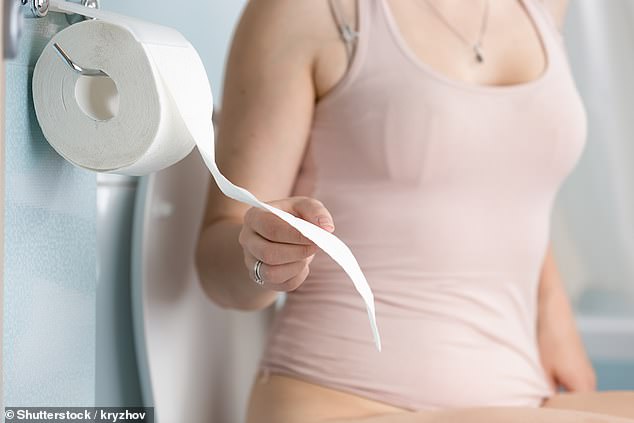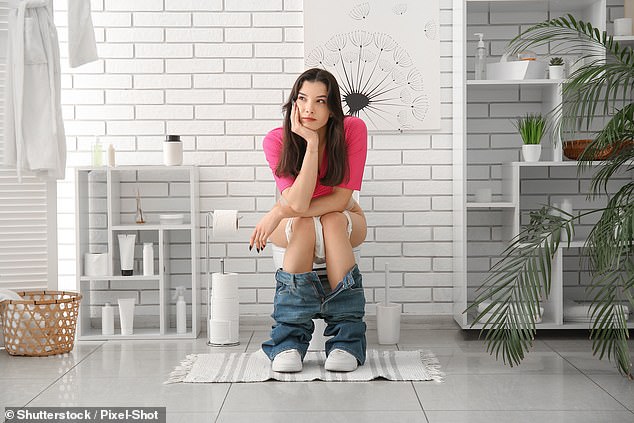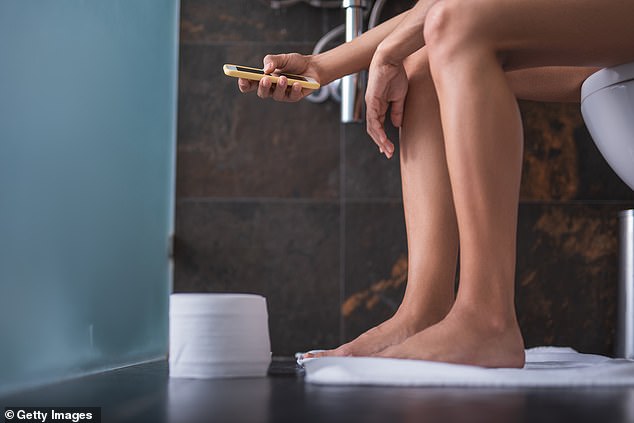It might not be something you’ve ever thought about – after all, a quick trip to the bathroom is one of life’s most ordinary acts.
But according to science, there’s a ‘sweet spot’ for the ‘perfect pee’, and it’s just 21 seconds.
From dogs to elephants, and humans too, researchers have discovered that when it comes to relieving ourselves, the body is far more finely tuned than you might think.
And if you’re taking much longer (or much less time) to urinate, it could be your body’s way of waving a red flag.
The discovery comes from a team of researchers at the Georgia Institute of Technology who have spent their time clocking mammals mid-stream.
The aim was to solve a deceptively simple puzzle – how can animals of wildly different sizes all manage to empty their bladders in roughly the same amount of time?
Their answer became known as the ‘Law of Urination’, and it turns out, it’s all about physics.
Bigger animals don’t just have bigger bladders, they also come equipped with longer and wider urethras, they noted.

It might not be something you’ve ever thought about but according to science, there’s a ‘sweet spot’ for the perfect pee, and it’s just 21 seconds
The extra length ramps up gravitational pressure, pushing urine out faster, while the added width reduces resistance.
So, whether it’s a Great Dane or a cow, nature has calibrated things so that mammals over three kilos take around 21 seconds to finish the job.
Elephants, with bladders that can hold several litres, surprisingly don’t spend half an hour going to the toilet either.
Instead, they finish in about the same time as a golden retriever.
Humans fall right into line too. For most healthy adults, urination at a normal, relaxed pace lasts somewhere between 20 and 25 seconds.
Doctors sometimes use this as a loose benchmark when assessing urinary health, though they’re quick to add it’s not necessary to stand in the bathroom with a stopwatch.
What matters most is your own personal ‘normal’, because major changes in timing can point to issues worth checking out.
Frequent, short urination can be a sign of an overactive bladder, while consistently long ones may suggest urinary retention or, in men, enlarged prostates.

The discovery comes from a team of researchers at the Georgia Institute of Technology who have spent their time clocking mammals mid-stream – and it turns out, it’s all about physics

Mammals weighing over about 3 kilograms tend to take around 21 seconds to urinate, whereas ‘healthy’ humans take somewhere between 20 and 25 seconds
Nerve problems can also interfere with bladder function, slowing things down.
And then there’s the problem of holding it in. Many of us are guilty of ignoring nature’s call until we’re bursting, whether stuck in traffic or midway through a meeting.
But straining your bladder this way can overstretch it over time, upping the risk of urinary tract infections and other complications.
Instead of counting to 21 every time you sit down on the toilet, experts say the real trick is noticing patterns.
If your usual stream suddenly takes twice as long, or if you’re running to the loo every hour for a brief dribble, that’s when it’s time to take note – and possibly take action.
And if you are guilty of the common yet unhygienic habit of scrolling your phone while sitting on the toilet too, you might want to nip that in the bud as it’s recently been slammed by a health professional.

A recent viral Instagram video shared by health content creator Danica Walker (pictured), saw her ask a medical expert: ‘What is the one thing you would never do as a gastroenterologist?’

In the clip, the gastroenterologist slammed those who scroll their phone while sitting on the toilet for lengthy periods of time
A holistic health content creator asked ‘What is the one thing you would never do as a gastroenterologist?’ in a new Instagram video which has been viewed over 2.3million times.
An unnamed gastroenterologist swiftly responded: ‘Never sit on the toilet with your phone.’
‘If you have the urge, go. When you’re done get out of there,’ he added.
The video, created by detox advocate Danica Walker, then asked the medical practitioner a follow-up question about the ideal length of time to be doing your business.
‘What is the maximum number of minutes one should be sitting?’ Danica asked.
The doctor responded: ‘I say five minutes. Get it in, and get out.’
Danica cheekily concluded the viral video by saying directly to the camera: ‘Okay people, send it to your husbands!’
The comments section was filled with remarks from stunned video viewers who were deeply wedded to the practice of using their mobile phones while on the toilet.
‘At this point in my life, I’m not sure I have the ability to poop without my phone,’ read one reply.
‘Watching this as I sit on the toilet,’ added another.
‘[B]ut it’s the one place I can find peace,’ a third person joked.
